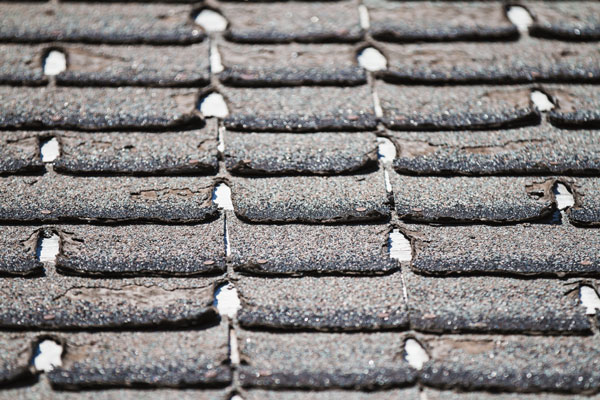There’s one thing that’s for certain. If your roof was installed more than 15 years ago it probably needs some repairs or maintenance. Whether it’s showing signs of leaking, has a cracked shingle, or is simply well past its expected life, how do you know whether you should repair it or replace it? We’re going to look at how to decide which is the better decision.

If a shingle is cracked, broken, or missing
Often the first visible sign of a roof in disrepair is a shingle or two that looks out of place. If you have a single shingle or tile that’s missing or in bad condition, there’s a good chance you don’t need to fork out for an entire replacement. If you can replace it quick enough, you can seal the roof back up before the rain and wind have a chance to get through and cause some real damage. But keep reading before making your decision.
How old is your roof?
Even if you only have a single shingle missing, if the roof is worn out then you should consider replacing it. If, for instance, your roof is only a couple of years old and is leaking, then there’s a good chance that something went wrong during installation and you might be able to repair it. If it’s leaking after 20 years, that’s a lot more likely to be natural wear and tear, which means you’re probably going to need a roof replacement.
Can you see any water damage?
After you’ve looked up top for any visible signs of damage, it’s time to go indoors. When water gets underneath your roof, it can penetrate deep into the house and cause some serious damage, as well as lead to mold growth. If you’re seeing damp spots inside the home or in the attic, peeling paint, or mold, then the water has already infiltrated too far. The entire roof is likely to already be compromised so the sooner you replace it, the better. Of course, you also have to replace any ceiling and drywall affected by the leak.
Can you patch it up?
If there has been a recent storm, it can cause a lot more damage than just breaking one shingle off your roof. In such cases, storms cause so much moisture that it might be wiser to simply replace the whole thing. However, you should have a roofing contractor investigate first to see whether you need a full roof replacement or not. A full roof replacement will ensure that your roof complies with current building codes and, if necessary, has ice and water leak barrier to prevent moisture from entering your home.
A roof replacement is more costly than a simple repair, of course, but when it’s necessary, it’s necessary. Neglect to invest in a new roof when you need it and you will instead be paying for much more frequent repairs. Get in touch with Deschutes Roofing if you’re still not sure whether you need a repair or replacement.










